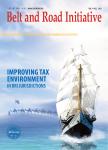An Ethical Framework for the Use of AI by Revenue Authorities
作者机构:KPMG
出 版 物:《Belt and Road Initiative Tax Journal》 (“一带一路”税收(英文))
年 卷 期:2024年第1期
页 面:41-51页
学科分类:12[管理学] 02[经济学] 0202[经济学-应用经济学] 1201[管理学-管理科学与工程(可授管理学、工学学位)] 081104[工学-模式识别与智能系统] 08[工学] 020203[经济学-财政学(含∶税收学)] 0835[工学-软件工程] 0811[工学-控制科学与工程] 0812[工学-计算机科学与技术(可授工学、理学学位)]
摘 要:The use of Al may give rise to substantial benefits but also significant risks for revenue *** paper provides a brief outline of the perceived strengths and weaknesses of Al and potential use of Al in tax *** include the use of Al in risk assessment such as the selection of taxpayers for review or audit,the detection of fraud,nearest neighbour guidance,predictive analysis,anticipating changes in behaviours,improving revenue authorities internal efficiency including transfer pricing benchmarking,and providing support and guidance to taxpayers through *** authorities are strong candidates for the use of Al given that data is central to what they *** paper postulates more than 20principles which could form the basis of an ethical framework for revenue authorities including policies on transparency,communication,traceability,explainability,human supervision,processes for the rectification of errors,data protection,privacy and *** believe that the adoption of these policies will reduce risks to revenue authorities and build trust in tax *** also believe that sharing best practices amongst revenue authorities should be a clear BRITACOM initiative consistent with its aims and objectives.



